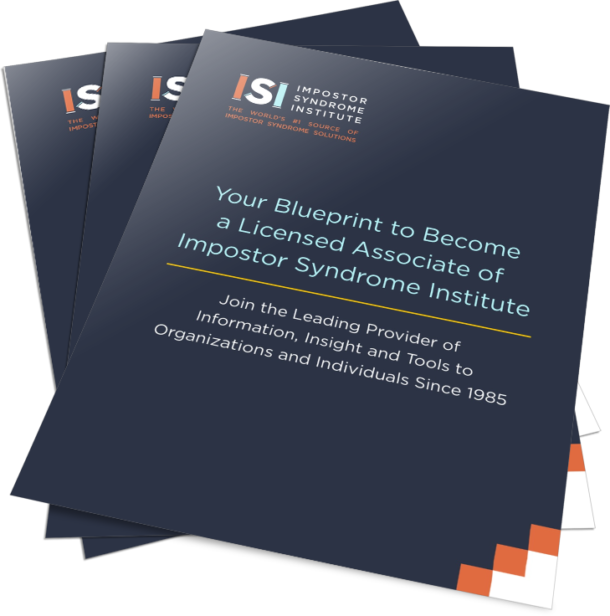In a recent LinkedIn post a coach shared her unusual method for determining if a client is experiencing impostor syndrome.
Her technique comes in the form of a question:
Would you rather give a talk in front of 200 people or to 6 senior execs at your company?
If the client chooses the audience of 200 people over the small group of execs, the coach informs them they have impostor syndrome.
Nonsense.
There are a number of valid reasons for choosing the larger audience other than impostor syndrome.
For instance:
– What if they (like me) far prefer the energy of being in front of a large audience?
– What if they understand – as all employees do – that whenever you work for someone else, those above you have control not over your career trajectory but indeed whether you even have a job? After all there’s a reason why it’s said, the truth is rarely told between the hours of 9-to-5
– What if they’re terrified of public speaking in general (it’s the #1 fear… #2 is death) and in fact would hate to speak to either audience?
As a coach, mentor, or manager, you never want to tell someone they have impostor syndrome.
And you certainly don’t want to have it come down to the answer to one question.
In fact, you shouldn’t automatically take any sign of normal self-doubt as a sign of impostor syndrome.
After all, stage fright, anxiety about failing a big exam, or jitters ahead of a big job interview are part of the human experience.
Which is not the same as impostor syndrome.
As you coach, manage, or mentor others keep in mind that fundamentally impostor syndrome fundamentally comes down three things:*
- Routinely chalking up accomplishments up to external factors like luck, timing, connections, or personality
- The belief that others see you as more capable, intelligent, talented than you “know” yourself to be
- Both of which lead to a persistent fear of being found out
Still there is more to impostor syndrome.
If your client suspects they’re dealing with impostor feelings, go to the source.
Psychologist’s Pauline Clance and Suzanne Imes co-coined the term impostor syndrome in 1978. A few years later Clance created a validated Impostor Phenomenon Scale available on her website.
Bottom line: No one should be “telling” anyone they have impostor syndrome. And certainly not based on a single question for which there are multiple interpretations.
You are welcome to reprint this post with the bio below.





